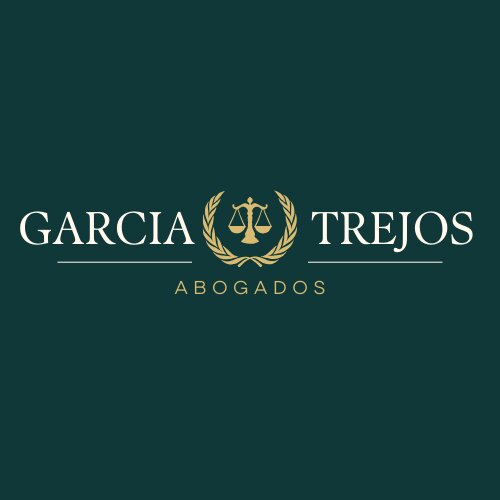Best Faith-Based Law Lawyers in Panama
Share your needs with us, get contacted by law firms.
Free. Takes 2 min.
Or refine your search by selecting a city:
List of the best lawyers in Panama
About Faith-Based Law in Panama
Faith-Based Law in Panama generally refers to the practices and traditions that inform the legal interactions and obligations of individuals and organizations based on religious principles. While Panama is predominantly a Catholic country, it is also home to various other religious communities, each with its own beliefs and practices. Faith-Based Law in this context involves the intersection of these religious norms with Panama's legal system.
Although Panama does not have a distinct legal system for Faith-Based Law, it recognizes the importance of religious freedom, allowing different communities to practice their faiths and resolve certain disputes internally, consistent with the general legal principles of the country.
Why You May Need a Lawyer
People may require legal assistance in Faith-Based Law in several situations:
- Negotiating contracts that need to comply with both legal and religious standards.
- Disputes involving church property or assets.
- Settling disagreements among religious community members using faith-based principles.
- Assistance with employment issues involving religious organizations.
- Guidance on religious rights and freedoms under Panamanian law.
Local Laws Overview
Key aspects of local laws relevant to Faith-Based Law in Panama include:
- The Constitution of Panama guarantees freedom of religion, allowing individuals to practice their faith freely.
- Religious organizations can register as legal entities, which provides them with certain privileges and responsibilities.
- Marriage can be performed under religious rites but must also comply with civil requirements to be legally recognized.
- Education laws respect religious instruction, allowing for both secular and religious schooling options.
- Tax regulations provide certain exemptions and considerations for recognized religious entities.
Frequently Asked Questions
What is the role of religion in Panama’s legal system?
Religion plays an influential role in society and has a recognized place in the legal framework, with specific provisions for religious freedom and the operation of religious institutions.
Can religious marriages be recognized legally in Panama?
Yes, but religious marriages must also comply with civil registration requirements to be considered legally valid.
How can a religious organization gain legal status in Panama?
Religious organizations can become legal entities by registering with appropriate government offices, which requires adherence to specific procedural and documentary requirements.
What legal issues might arise with religious property?
Disputes over ownership, use, and management of property owned by religious groups can arise, requiring careful navigation of both religious guidelines and civil law.
Are there tax benefits for religious organizations?
Yes, registered religious organizations may enjoy tax exemptions and other financial benefits under Panamanian law.
How are disputes within religious communities typically resolved?
Often, these disputes are addressed internally using religious principles. However, for legally recognized matters, mediation or court involvement may be necessary.
Can religious employers impose faith-based requirements on employees?
Yes, to some extent, particularly if it pertains to the nature of the religious work. However, Panamanian labor laws also protect against unjust discrimination.
Does Panama have laws protecting freedom of worship?
Yes, the Constitution and various legal statutes protect the freedom of worship and religious expression.
Is religious education available in public schools?
Catholic religious instruction is generally available in public schools, reflecting the country's predominant faith, though other religious education is also supported in private settings.
How can conflicts between secular and religious laws be addressed?
Such conflicts are typically resolved by finding a balance through dialogue and a comprehensive understanding of the legal protections and limitations in place.
Additional Resources
If you need further information or legal advice related to Faith-Based Law in Panama, consider reaching out to the following:
- The Ministry of Government's Department of Religious Affairs
- Panamanian Bar Association for Lawyers specializing in religious law
- Local religious councils or interfaith organizations
- Law schools or universities offering legal clinics
Next Steps
If you need legal assistance in Faith-Based Law, here’s how you can proceed:
- Identify and document the specific legal issue or question that you need help with.
- Gather any relevant documents, such as contracts, correspondence, and agreements related to your issue.
- Seek a consultation with a lawyer who specializes in Faith-Based Law or has experience with religious communities in Panama.
- Reach out to local religious or legal organizations for guidance and referrals to experienced legal professionals.
- Consider mediation or alternative dispute resolution if applicable to your situation.
Lawzana helps you find the best lawyers and law firms in Panama through a curated and pre-screened list of qualified legal professionals. Our platform offers rankings and detailed profiles of attorneys and law firms, allowing you to compare based on practice areas, including Faith-Based Law, experience, and client feedback.
Each profile includes a description of the firm's areas of practice, client reviews, team members and partners, year of establishment, spoken languages, office locations, contact information, social media presence, and any published articles or resources. Most firms on our platform speak English and are experienced in both local and international legal matters.
Get a quote from top-rated law firms in Panama — quickly, securely, and without unnecessary hassle.
Disclaimer:
The information provided on this page is for general informational purposes only and does not constitute legal advice. While we strive to ensure the accuracy and relevance of the content, legal information may change over time, and interpretations of the law can vary. You should always consult with a qualified legal professional for advice specific to your situation.
We disclaim all liability for actions taken or not taken based on the content of this page. If you believe any information is incorrect or outdated, please contact us, and we will review and update it where appropriate.
Browse faith-based law law firms by city in Panama
Refine your search by selecting a city.















